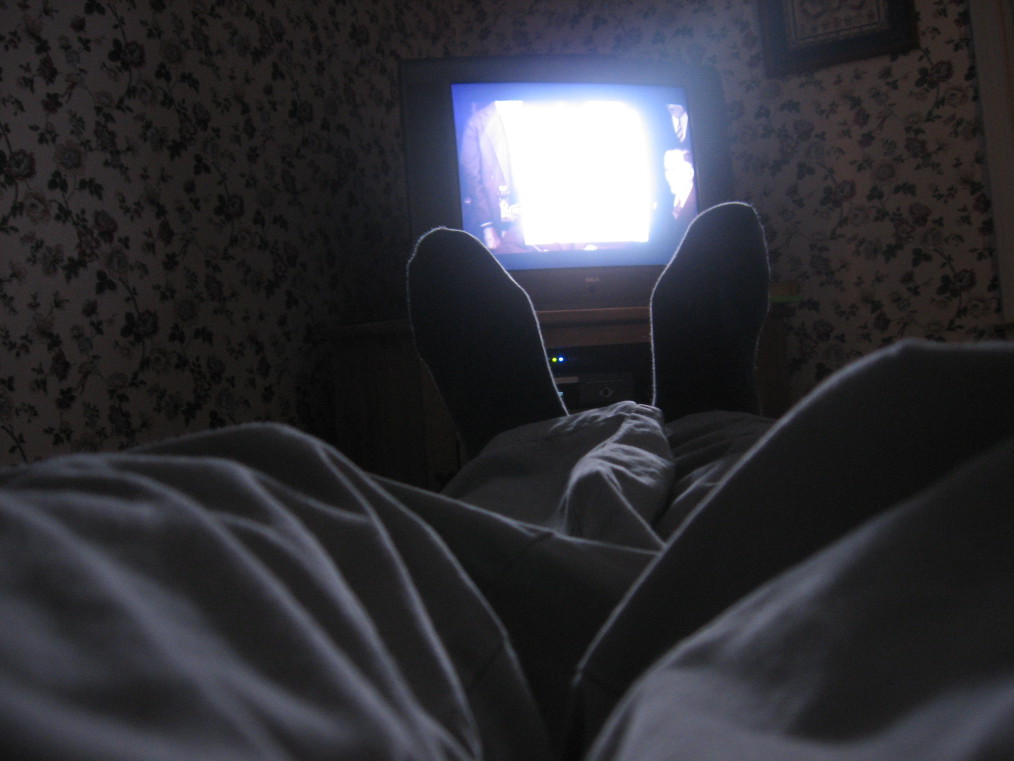
What if… this title had been different?
Second-year Psychology students participating in the University Honours College or in the Departmental Excellence Program complete a Research Seminar in which they learn to communicate science to various audiences, including the general public. For one assignment, the students write a popular science paper. This year a selection of these papers is published on Mindwise. Today’s piece is by Neeltje-Cees de Wit.
Imagine that you get home from a bad day at work, a bit tired, and you are looking for some distraction. Fortunately, you bought a new movie last week and you can use this opportunity to finally watch it: you decide to watch the movie to feel happier. However, it turns out to be a real tearjerker. There are many sad plot twists after the happy beginning, the protagonist’s lover dies and the end is not as you hoped it to be. You do not want to stay in this sad mood, so you play back the movie to the point where everyone was still happy, and you think about how the movie could have ended better. You imagine an ending in which the protagonist gets happily married with his love and together they make the world a better place. Feeling better about this ending, you decide to start playing the movie again, but of course the actual ending did not change.
“we often think of possible different life plots”
You may think: “Of course the movie did not change, there is no use thinking about how the movie could have ended differently, and why would you expect it to change when you play it over?” However, we all do the same in daily life. Maybe not when thinking of different movie plots, but we often think of possible different life plots: “What if I would have had the courage to ask her out?”; “What if I would have accepted that other job offer?”; “What if I had bought a different movie, one that really would have made me feel better?” After asking yourself these questions, you may imagine how you would have watched a romantic comedy, after a good day at work, with the girl that you never asked out because you did not have the courage to do so, but who you would have loved to be with now. After imagining the perfect life scenario, the life you should have had, you may feel really bad about yourself.
Then, why do we do this? Why do we think of scenarios that are not realistic and do not necessarily make us feel happy? Neal Roese, a social psychologist from Northwestern University, explains why we like to think about how things could have turned out differently. He argues that people may feel better about themselves if they think of alternative endings. This makes sense, because if you would imagine how something could have gone worse, you may think that you did not do so bad after all and this would make you feel better. The other reason why we like to think about alternative outcomes is to prepare for the future. If you think about how you could have done something better, you may learn from that thought for the future. So the next time a similar event takes place, you will be prepared to act as you failed to act the previous time. According to Roese, people can strategically use the imagining of how things could have gone worse if they want to feel good about themselves, and the thoughts of how things could have gone better to improve themselves in future situations.
“people may feel better about themselves if they think of alternative endings”
So thinking about under what circumstances you should have watched the movie would indeed not make you feel much better, however, it would be better to think about what could have been worse: “What if I did not have any job?”; “What if I would have fallen from the stairs?”; “What if I looked like Shrek?” Then it would be possible to imagine a scenario in which you would be unable to afford a home, unable to walk, and avoided by everyone you meet. Thinking about that scenario, you may actually end up feeling pretty good about your current lifestyle and you can go to sleep happily after all.
Does this mean that it would be bad to imagine how things could have turned out better? No! As Roese mentions, thinking about how it might have been better may prepare yourself for the future, as you have become from your past “failures”. So the next chance you get, you would accept that job offer, you would finally take up the courage to ask out your crush out and you would watch that romantic comedy together.
During the second year of the Honours program at the University of Groningen Martijn Blikmans, Katja Albada, Judith Fortmann and I conducted research on the emotions that people experience when people they think of how things could have turned out differently. Our project was supervised by dr. Kai Epstude. The results seem promising, and in the future other researchers will likely also find out more about this concept. Now, I want to challenge you to think about how your day could have been worse and to have a happy day.
Reference:
Roese, N.J., (1994). The functional basis of counterfactual thinking. Journal of Personality and Social Psychology 66(5), 805-818. doi: 10.1037/0022-3514.66.5.805
 Author: Neeltje-Cees de Wit
Author: Neeltje-Cees de Wit
Bio: Neeltje-Cees de Wit (19) is a student who just finished the second year of the Dutch Bachelor of Psychology program. She is also in the Honours College. Her main interests within psychology are the social and the cognitive domains, particularly in relation to linguistics.
NOTE: Image by Qfamily, licenced under CC BY 2.0



